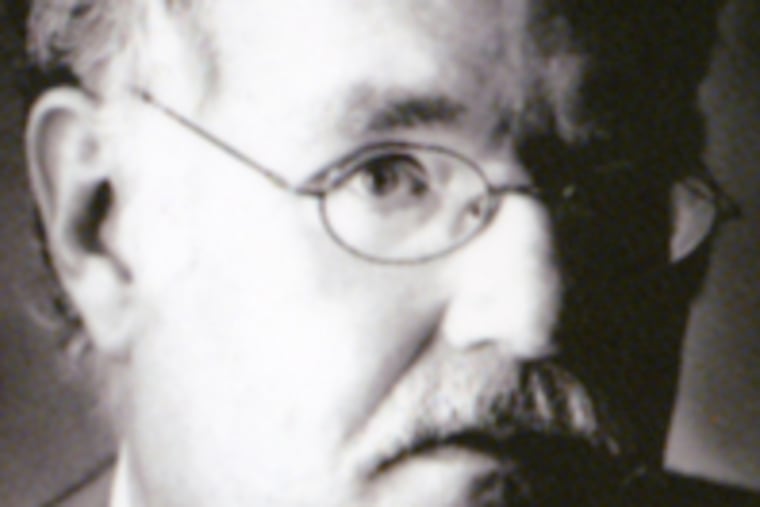He thinks physics proves Christianity
'I have a salary at Tulane," says Frank Tipler, "some 40 percent lower than the average for a full professor at Tulane as a consequence of my belief."

By Frank J. Tipler
Doubleday. 320 pp. $27.50
nolead ends nolead begins
Reviewed by Bryan Appleyard
'I have a salary at Tulane," says Frank Tipler, "some 40 percent lower than the average for a full professor at Tulane as a consequence of my belief."
Physicists today, he says, are not supposed to believe in God. But he does, though I suspect that in itself would not reduce his salary. What may well do, however, is his belief that the Cosmological Singularity is God. In other words, he believes that contemporary physics has found God and that physics explains Christianity. In fact, it is probably true to say that Tipler does not believe at all. There is no need, for he feels he has proved Christianity through physics.
With his previous book, The Physics of Immortality, Tipler used physics to prove that death would be utterly conquered as future beings deployed vast energy resources, derived from the contraction of the universe, to resurrect the past, ourselves included. Here he goes much further. He says that modern physics has confirmed Christianity - from the Virgin Birth through the Turin Shroud and walking on water to the Resurrection - in detail.
Central to this argument is his conviction that there is no discontinuity between the insights of science and the revelations of the Gospels. Miracles, for example, are not, as is often claimed, sudden deformations or breaches of the natural order. They happen through known physical processes. Walking on water is accomplished through a particle beam and dematerialization through the multiple universe model implied by quantum theory. That they happen when they do is, of course, God's will, but, in making them happen, he does not violate the order of his creation.
This is not a limitation on God's power because he established the laws of physics precisely to encompass all these eventualities. Similarly, the existence of evil is neither God's failing nor proof of his nonexistence. If we could see the many universes - the multiverse - he has created, the problem would simply vanish. Our limited perspective means that we cannot fully understand this any more than we can visualize a four-dimensional cube, but, as with the cube, we can at least imagine the possibility.
The strong argument against relying so much on contemporary scientific knowledge is that, in years to come, much of that knowledge may be overthrown. Indeed, for the majority of physicists, the physics on which Tipler rests his case is already obsolete or at least debatable. The multiverse is generally regarded only as one possible interpretation of quantum theory. The Standard Model of particle physics is thought to be incomplete, and we have no theory of quantum gravity. The Theory of Everything that seemed to be looming in the late '80s now seems as distant as ever. Hope now resides in the exotica of string theory and supersymmetry.
Tipler rejects all this. We have a theory of everything, all the problems were resolved 30 years ago. Subsequent stringy speculations are just that, speculations without any experimental proof. To deny the multiverse is to deny quantum theory; a complete theory of quantum gravity was stumbled upon long ago by Richard Feynman and Steven Weinberg, and the Standard Model is founded on rock-solid foundations of experimental evidence. Why, then, do the physicists deny all this? Because, says Tipler, they don't like the universe that emerges, a universe that begins and ends with God.
The experimentally based physics to which Tipler refers predicts a singularity - a point at which all known laws of physics break down and to which, therefore, our science has no access - from which the universe sprang. There is a further singularity at the end of the universe and a third joining the two. This is the Holy Trinity. The first singularity, says Tipler, is God the Father, the second God the Holy Ghost, and the third God the Son. The last, because of his role as the singularity that runs alongside the present, is able to appear in human history.
Though this may seem highly deterministic, Tipler insists we still have free will. Our role is to play our part in the drama that will lead to the final singularity. This is a technological matter, but clues to how it may be achieved were laid at the Resurrection. Notably there is the baryon annihilation process that will provide us with infinite energy, interstellar travel, and a mechanism that will advance the contraction of the universe toward its final encounter with God. Baryon annihilation will also provide us with appalling powers of destruction. It converts matter into energy with absolute efficiency. On that basis, a human body contains enough mass to create a 1,000-megaton explosion. Tipler expects the world as we know it to end within 50 years or so. Our destiny will be intact, however, as we shall have become backed-up computer programs, probably on our way to the stars.
I doubt this book will make many converts. Believers will continue to believe, perhaps with a little more confidence, and skeptics will continue to doubt, perhaps with a little less. But Tipler should not be ignored by anybody. His great virtue is that he dramatizes the possibility that there is a deep and so far unknown connection between our faiths, our intuitions and our knowledge. He is due, at the very least, for a salary review.